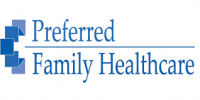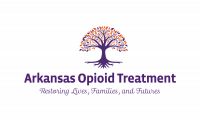South Arkansas Youth Services - Magnolia
Drug Rehab Center in Magnolia, Arkansas
South Arkansas Youth Services - Magnolia, located in Magnolia, Arkansas, is a premier substance and behavioral healthcare provider, offering comprehensive care, including mental health and addiction services, in a supportive and therapeutic environment.
About
South Arkansas Youth Services in Magnolia, Arkansas, specializes in alcohol and drug rehab for adolescents within a residential framework. This facility caters to young individuals seeking recovery, incorporating a range of behavioral health care services and addiction treatments tailored to adolescent needs. Drawing on a rich history of service, it focuses on age-specific rehabilitation programs.
- Dedicated adolescent treatment programs ensure care is age-appropriate and effective.
- A wide range of insurance plans, including Medicaid and Medicare, are accepted, making treatment accessible to many.
- The facility is recognized for employing evidence-based treatment interventions, aiding in the development of new coping strategies.
- Complementary holistic approaches like yoga and mindfulness are incorporated to support recovery.
South Arkansas Youth Services is lauded for its comprehensive care and has received accreditation from the Commission on Accreditation of Rehabilitation Facilities (CARF). This recognition underscores its commitment to high standards in treatment delivery and facility operation. Moreover, its innovative use of both traditional and holistic treatment methods highlights its swath of services.
Treating a variety of addictions, this program encapsulates the blend of individual, group, and family therapy, supplemented by psychiatric care, educational and vocational training, medication management, and crisis intervention. Therapeutic methods such as motivational interviewing, cognitive behavioral therapy, and Dialectical Behavioral Therapy are key components of their individualized plans. Levels of care extend to include support groups and relapse prevention, all in the service of fostering durable recovery.
Genders
Ages
Modality
Additional
Accreditations

CARF
The Commission on Accreditation of Rehabilitation Facilities (CARF) is a non-profit organization that specifically accredits rehab organizations. Founded in 1966, CARF's, mission is to help service providers like rehab facilities maintain high standards of care.
Conditions and Issues Treated
Within the past decade, opioid addiction has become a nationwide epidemic. The United States hosts one of the world’s highest rates of opioid use or abuse and has one of the highest rates of opioid-related deaths. In the United States, opioid drugs are classified as Schedule II-IV controlled substances due to their highly addictive properties and potential for abuse. These include morphine, opium, heroin, oxycodone, hydrocodone, methadone, and fentanyl. Physicians usually prescribe opioids to help control pain.
Over time, opioid users develop a tolerance for the drugs, which makes it difficult, if not impossible, to function without them. In turn, opioid users often resort to illicit means of obtaining the drugs. These means can include drug dealers, friends, and family members who do not have legitimate prescriptions for the drugs. Opioid addiction can quickly lead to heroin use, especially those seeking more intense highs than prescription opioids offer. Due to the high risk of overdose, heroin users are at a much higher risk for illness and death.
A person who struggles with addiction and a mental health condition suffers from a dual diagnosis. This means that they have two issues that must be treated. The specific mental health issues that the patient at South Arkansas Youth Services - Magnolia might have include but are not limited to:
- Depression
- Bipolar Disorder
- Anxiety
- PTSD (Post Traumatic Stress Disorder)
The specific addiction issues that the patient might have include but are not limited to:
- Alcoholism
- Drug Addiction (i.e., Cocaine, Meth, and other stimulants, Marijuana, and Ecstasy)
The combination of the two illnesses can be tough to treat. Taking care of one or the other is tough, and taking care of both cannot be done alone. A patient who receives dual diagnosis treatment will be given the best chance at becoming sober.
Levels of Care Offered
This center offers a variety of custom treatment tailored to individual recovery. Currently available are Aftercare Support, Drug Rehab, Dual-Diagnosis, Inpatient, Outpatient, with additional therapies available as listed below.
Inpatient treatment centers offer a safe, secure, and often medically supervised environment for drug or alcohol-addicted individuals. Many of these facilities are equipped to provide detoxification, treatment for co-occurring mental health disorders, and aftercare programs.
The patient typically spends 28 to 30 days at the facility and will receive extensive drug counseling. They will also learn how to live without drugs and how to make the right decisions in life.
An outpatient treatment program is set up to help with alcohol or drug addiction or a co-occurring disorder. The treatment must attend the treatment facility for their therapy and other programs but return home each night. The frequency of mandatory attendance decreases after much of the treatment program is complete. The treatment programs are monitored by the treatment facility and case managers who work for a judge or judge’s office. A treatment program may be performed out of a treatment facility, treatment clinic, or treatment center.
The benefits of outpatient treatment programs are many. One of the most beneficial treatment programs is that it allows treatment for clients who cannot afford or may not be able to attend treatment at a treatment facility, treatment center, or treatment clinic full-time. Another benefit of treatment programs is that they reduce crime rates because treatment allows people to treat their addiction.
Recovering drug addicts need aftercare support when they leave treatment. The support can include guidance through 12-step programs, outpatient rehabilitation programs, and support groups. Aftercare supports the individual in their desire to maintain sobriety by reducing relapse risk with positive choices.
The success of drug treatment does not end when the addict leaves the rehabilitation center. There is no such thing as a “one and done” type of rehabilitation process. Recovery is a lifelong journey that begins with treatment and continues by the addict committing to outside support groups or drug rehab programs.
When choosing a program, it is crucial to choose one that will provide long-term aftercare support. This ensures that you have the tools you need to sustain your recovery.
Therapies & Programs
Individualized Treatment is essential because it gives addicts the ability to participate in a program that meets their unique needs. An addict should work with professionals who understand what they’re going through, especially if the addict is actively using. Finding the right treatment program for an addict is difficult, but it’s even harder without communicating with those who have experience treating your specific situation.
Group therapy sessions provide recovering addicts with a chance to cope with everyday situations that many face. Group therapy sessions are held in rehab facilities, clinics, churches or community centers that offer drug addiction treatment.
People who attend these groups are encouraged to voice their feelings and support other addicts in recovery. This helps group members strengthen their own recovery program while cheering on others who are struggling with sobriety.
Life skills training is beneficial for addicts in recovery because it helps them learn how to take care of themselves and improve their quality of life, which can promote feelings of purpose and motivation.
This works by teaching individuals life-enhancing skills that support positive living, including:
- Healthy lifestyle habits
- Skills to effectively manage stress
- Effective communication skills to help them get their needs met without turning to drugs or alcohol
- Money management and budgeting skills so they can continue to take care of themselves after treatment ends.
Payment Options Accepted
For specific insurance or payment methods please contact us.
Is your insurance accepted?
Ask an expert, call (888) 674-0062
South Arkansas Youth Services Associated Centers
Discover treatment facilities under the same provider.
- South Arkansas Youth Services - El Dorado in El Dorado, AR
- South Arkansas Youth Services - Camden in Camden, AR
- South Arkansas Youth Services - SAYS in Texarkana, AR
- South Arkansas Youth Services - SAYS - Columbia Road in Magnolia, AR
Learn More About South Arkansas Youth Services Centers
Additional Details
Specifics, location, and helpful extra information.
Magnolia, Arkansas 71753 Phone Number(870) 234-2600 Meta DetailsUpdated April 15, 2024
Staff Verified
Patient Reviews
There are no reviews yet. Be the first one to write one.
Magnolia, Arkansas Addiction Information
Arkansas has one of the highest rates of substance abuse and addiction in the nation for drug overdoses. Methamphetamines and prescription opioids are by far the most widely abused drugs in the state. Despite the high rates, Arkansas ranked only 25th in the for drug overdose deaths in 2013.
Treatment in Nearby Cities
- Danville, AR (124.0 mi.)
- Augusta, AR (176.4 mi.)
- Pine Bluff, AR (98.1 mi.)
- Magnolia, AR (1.0 mi.)
- Hardy, AR (233.8 mi.)
Centers near South Arkansas Youth Services - Magnolia
The facility name, logo and brand are the property and registered trademarks of South Arkansas Youth Services - Magnolia, and are being used for identification and informational purposes only. Use of these names, logos and brands shall not imply endorsement. RehabNow.org is not affiliated with or sponsored by South Arkansas Youth Services - Magnolia.





